The secret to business longevity is happy and loyal customers. In order to keep your customers satisfied and coming back for more, you need to nurture them and build relationships that are mutually beneficial. In this article we’ll understand why it’s important to build long-lasting customer relationships and how to get started?
Importance of building customer relationships
1. Boosts sales
Caring about building relationships with customers and staying in touch with them throughout their journey will keep you on their radar, so that when a need arises, you are the first option they seek.
2. Reduces customer attrition
Positive customer relationships keep your customers tethered to your business. This leads to improved customer retention and a research done by Bain & Company found that 5% increase in retention yields profit increase of 25-100%.
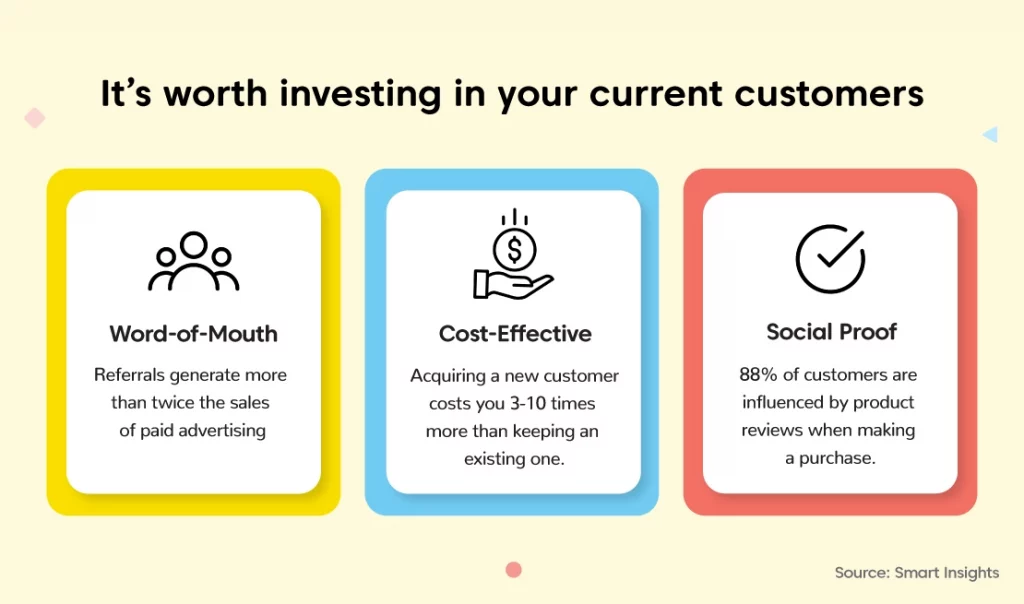
3. Increases customer life-time value
Building and maintaining customer relationships helps you increase the revenue you can generate from a single customer. Loyal customers spend 67% more on average than new customers.
4. Optimize customer acquisition costs
It costs 5 times more to acquire a new customer than to retain an existing one. Companies can lower their customer acquisition costs by nurturing current customers and increasing their repeat customer rate.
5. Improves brand image
When you treat your customers well and focus on improving their experience, it keeps them happy. Happy customers recommend your company to others and it is the best form of marketing, even more effective than paid ads, resulting in five times more sales and an improved brand reputation.
Top ways to build long-term relationships with your customers
1. Assist them throughout their journey
Customer journey spans across multiple touchpoints over several channels. It is the entire roadmap that a customer treads throughout brand discovery, purchase and beyond. 96% of customers say that customer service is important in their choice of loyalty to a brand. So, while focusing on pre-sales service is important to turn prospects into customers, after-sales service is also critical for ensuring repeat business.
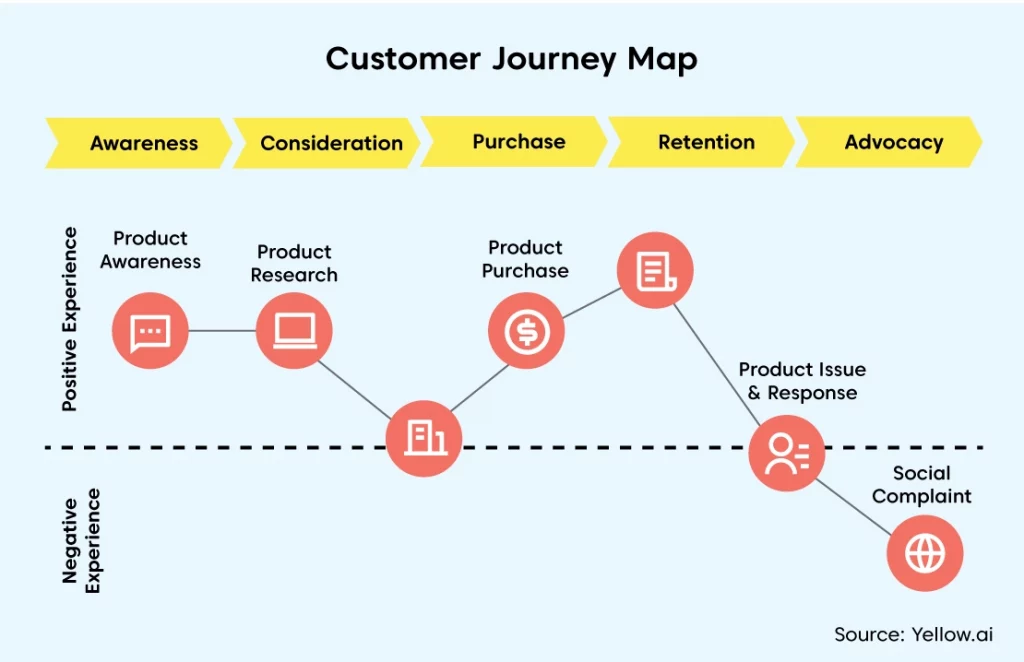
In a research by McKinsey, it was found that organizations that fail to offer end-to-end customer support can negatively affect the customers’ view of a business and face consequences that range from customer defection and dramatically higher call volumes to lost sales and lower employee morale. In contrast, the companies that deliver consistent experiences throughout the customers’ journey can expect to enhance customer satisfaction, reduce end-to-end service cost and improve sales and retention.
2. Reduce customer effort
Customers will remain loyal to your brand if you make their lives easier. This also means reducing their effort and making their journey as hassle-free as possible. To reduce customer effort, you need to first map out your customers’ journey and look at ways in which you can make the processes more convenient for them.
For example, you can send proactive order updates to your customers, make it easy for them to reach you over multiple channels, enable self service options for them or provide them with real-time support. The goal is to make sure you meet customers where they are and deliver streamlined experiences.
3. Personalize experiences with tailored communication
Personalization, which was once limited mainly to targeted offers, is now viewed as the default standard of engagement. Infact, 71% of customers expect businesses to deliver personalized experiences and 76 percent of them become frustrated when this doesn’t happen.
Customers expect companies to engage with them as individuals rather than customer types or segments. They want you to understand their unique requirements and design products, services and interactions that meet their specific tastes and preferences.
4. Reward loyal customers
Reward and loyalty programs can be a huge hit on the company’s bottom line. In fact, 69% of consumers say their buying decisions are influenced by whether the company offers customer rewards. Rewards can range from gifts, discounts, points and experiences that evoke an emotional connection between a brand and its target audience.
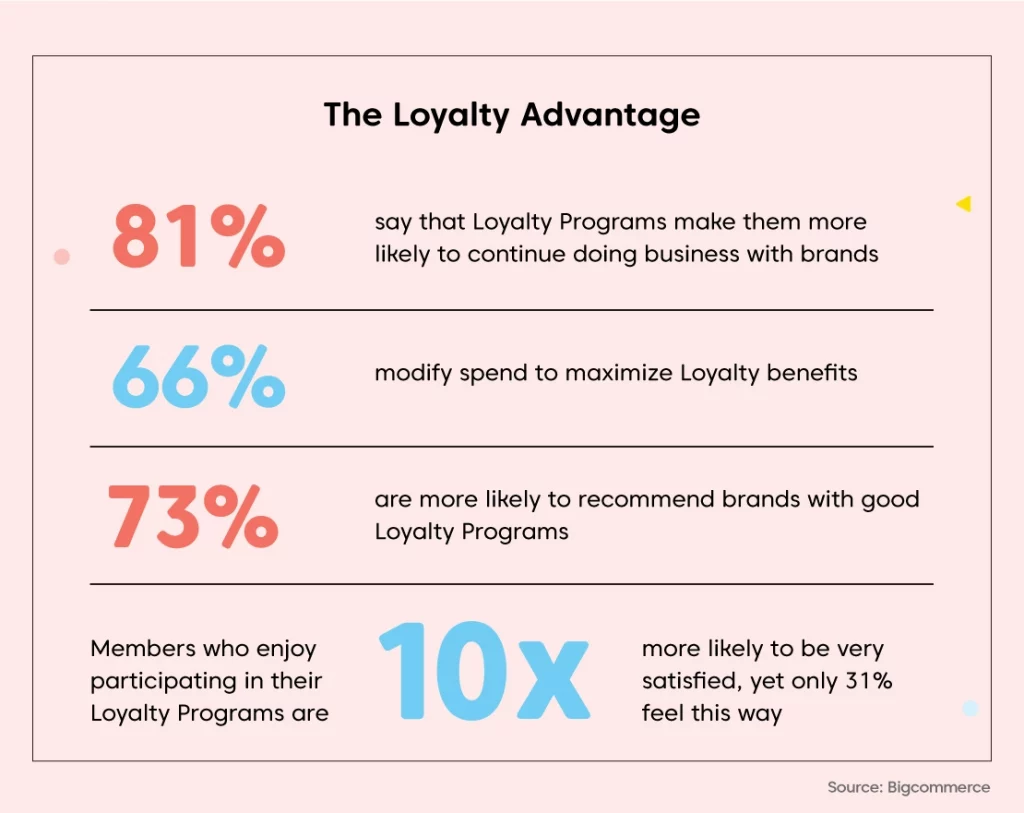
However, customers can get frustrated when companies treat reward programs as marketing gimmicks. When you force consumers to work for a discount, it doesn’t feel like a reward and can also create negative experiences that the customers won’t want to repeat or share with their friends and family. Instead, companies should first and foremost focus on creating a truly enjoyable brand experience.
5. Respond to every concern promptly
90% of customers rate an immediate response as essential or very important when they have a customer service question. Customers want to feel valued and they want to know that their time is respected. Untimely or slow response can make them feel neglected and result in loss of customers and revenue, especially if done repeatedly.
Customer engagement automation with AI-powered virtual assistants can help you get back to your customers promptly, anytime, anywhere, across channels and in multiple languages, with complete journey control.
6. Collect and pay attention to feedback
Asking your customers for their opinion will make them feel appreciated and as valued stakeholders of your business, they’ll give you informed suggestions that can improve your products and services.
You can try sending a NPS survey asking whether your customers would recommend others to buy from your brand or a CSAT survey to measure their satisfaction. Regardless of the type of survey, when you collect feedback from your customers, it will show them that you care and are interested in creating better experiences for them.
7. Implement a customer-centric business strategy
Customer-centric is a strategy and a culture of doing business that focuses on creating the best experience for the customer, and by doing so builds brand loyalty. Client-centric businesses ensure that the customer is at the center of a business’s philosophy, operations, or ideas.
To implement a customer-centric business strategy, you need to understand your customers, their needs, wants, and communication preferences. You need to delve deeper into why they interact with your brand and what they want to achieve from those interactions.
8. Proactively address customer problems
A report by Enkata found that taking a proactive approach towards support can increase customer retention rates by upto 5%. It enables you to enrich your current customer base by providing and extracting more value.
Proactive support is the next gen customer service wherein you anticipate customer needs and problems to offer preemptive solutions. It will enable you to stay one step ahead and solve customer problems even before they arise.
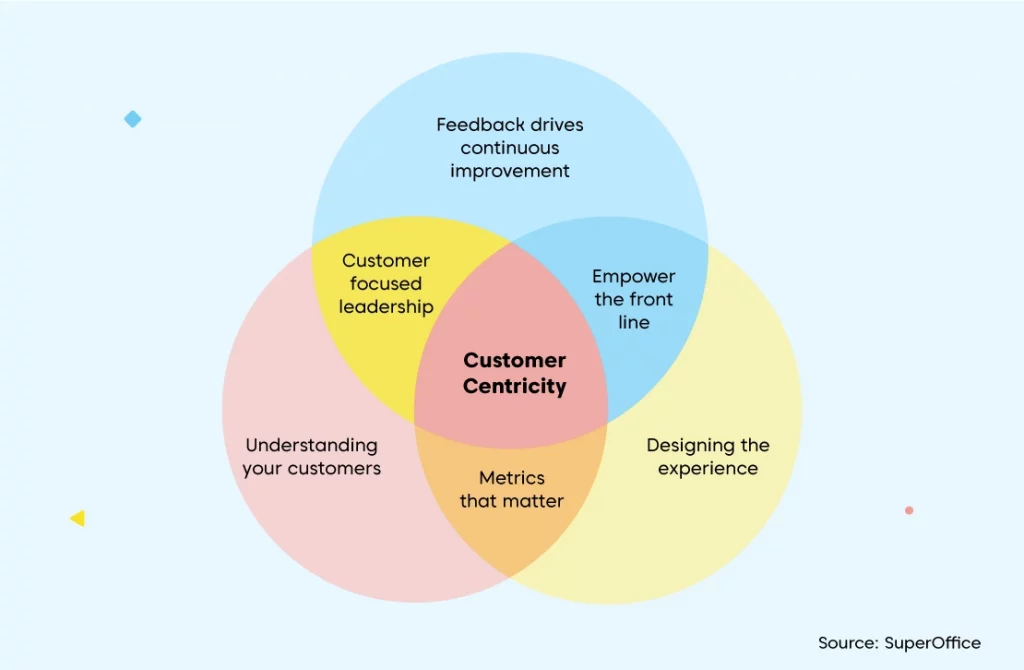
9. Deliver consistent omnichannel support
The explosion of potential customer interaction points across new channels, devices, applications and more, makes consistency of service and experience across channels almost impossible—unless you are managing the entire journey and not simply individual touchpoints.
By implementing an omnichannel customer support strategy you can interact with customers on their preferred channels and avoid loss of information when a customer switches from one channel to the other. This streamlines cross-channel communication and enables customers to get in touch with you whenever they want, wherever they want.
10. Strive to exceed customer expectations
Customer expectations are higher than ever. A recent study by Intercom found that while 73% of support leaders say customer expectations are increasing, only 42% of them believe that they’re actually meeting those expectations. That’s a significant gap between expectations and reality, rather an easy one for support teams to fall into
Historically, customers expected basics like quality service and fair pricing but modern customers have much higher expectations. In order to meet them, you need to let go of archaic customer service approaches and employ the best of AI and human intelligence to offer the most seamless digital experiences.
Tools to help build positive customer relationships
If there is one thing that’s common between all the ways to build positive customer relationships, it’s to keep the conversation going. Your customers should know that you have their back at all times and are available for them whenever they need. You must also be able to understand their unique needs and preferences and offer real-time support. In order to accomplish all of this without overworking or hiring more support agents, you need to employ the right AI-powered tools.
1. Intelligent chatbots
Chatbots integrated with your CRM and order management systems can automate repetitive tasks to improve agent productivity. They can also extract customer data from your databases in real-time to offer personalized support and recommendations.
NLP and AI-powered chatbots improve with every interaction and use intent recognition and sentiment analysis to provide the best, human-like support to your customers.
Build your first chatbots with Yellow.ai no code chatbot builder and deploy it to 35+ channels with a single click. Get a free trial.
2. Agent assist software
Empower your support teams to handle multiple queries simultaneously across chat, email and voice with a unified agent assist dashboard. Raise your CSAT scores by never letting a single conversation go unnoticed with omnichannel live support.
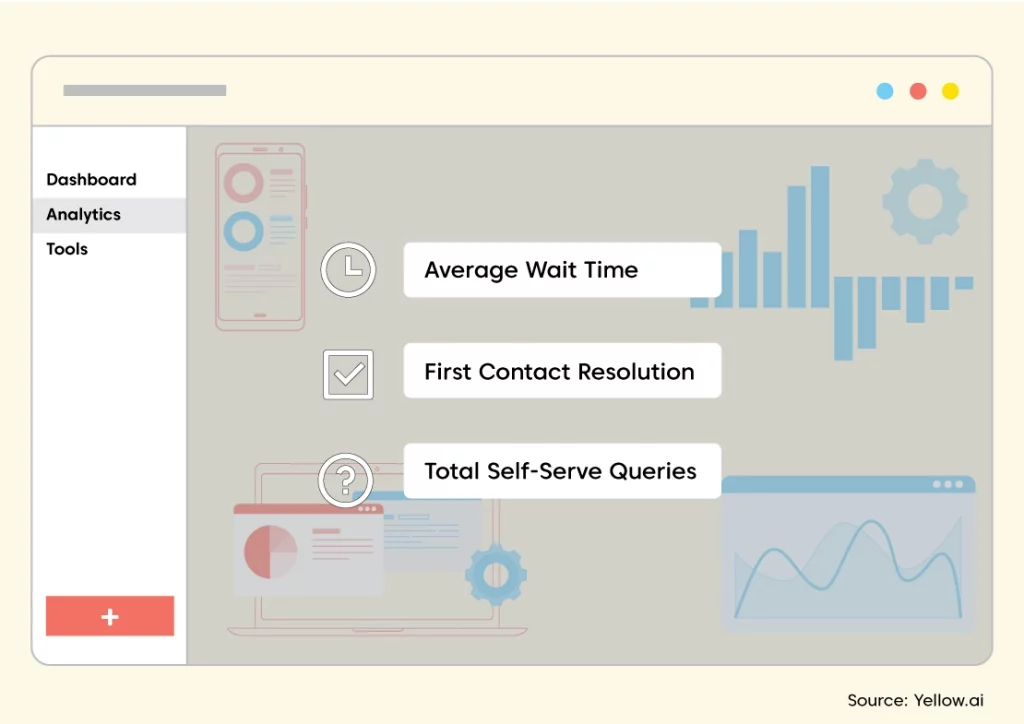
3. Customer analytics dashboard
Get deeper insights into what your users are doing on your platform and why in real-time. Track key customer analytics metrics like response times, customer satisfaction, customer lifetime value and more to identify gaps in your service and improve customer experience.
You can get easy access to all these tools at Yellow.ai total experience automation platform. Request a demo and our experts will help you get started.
















